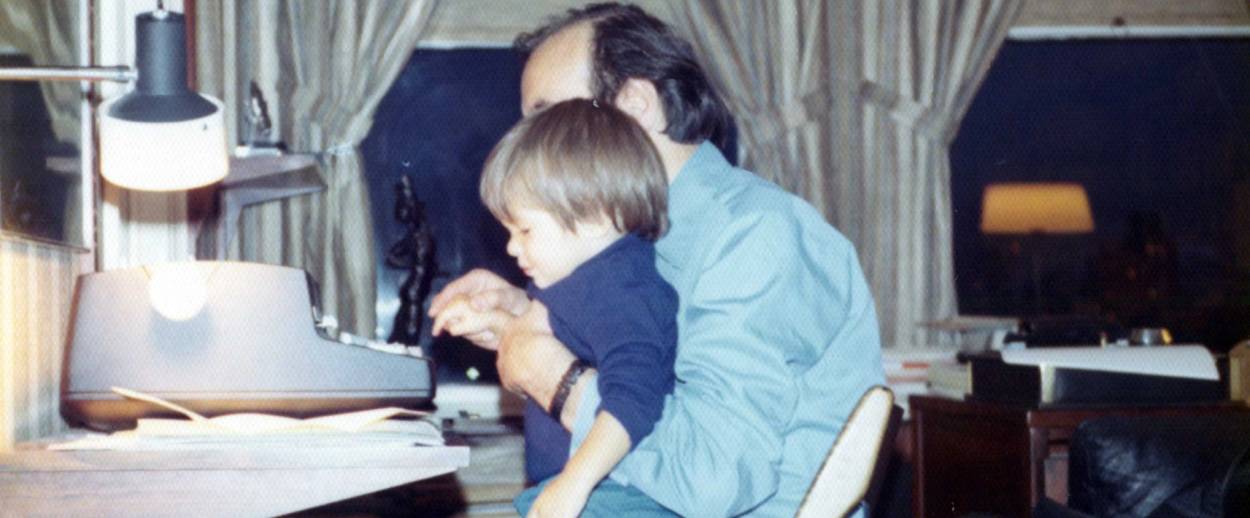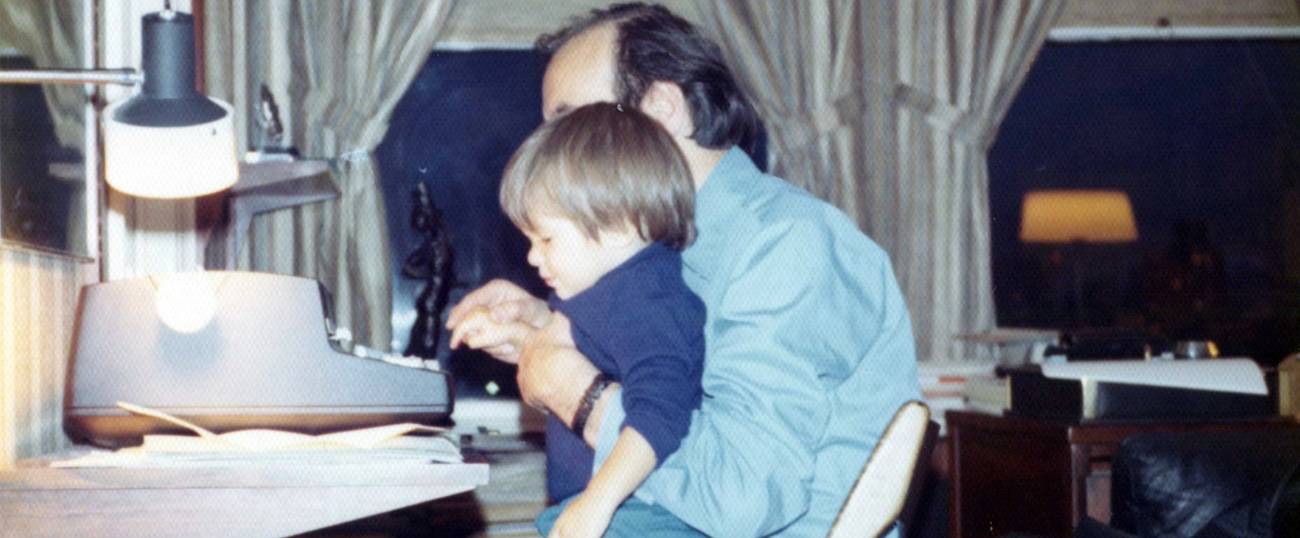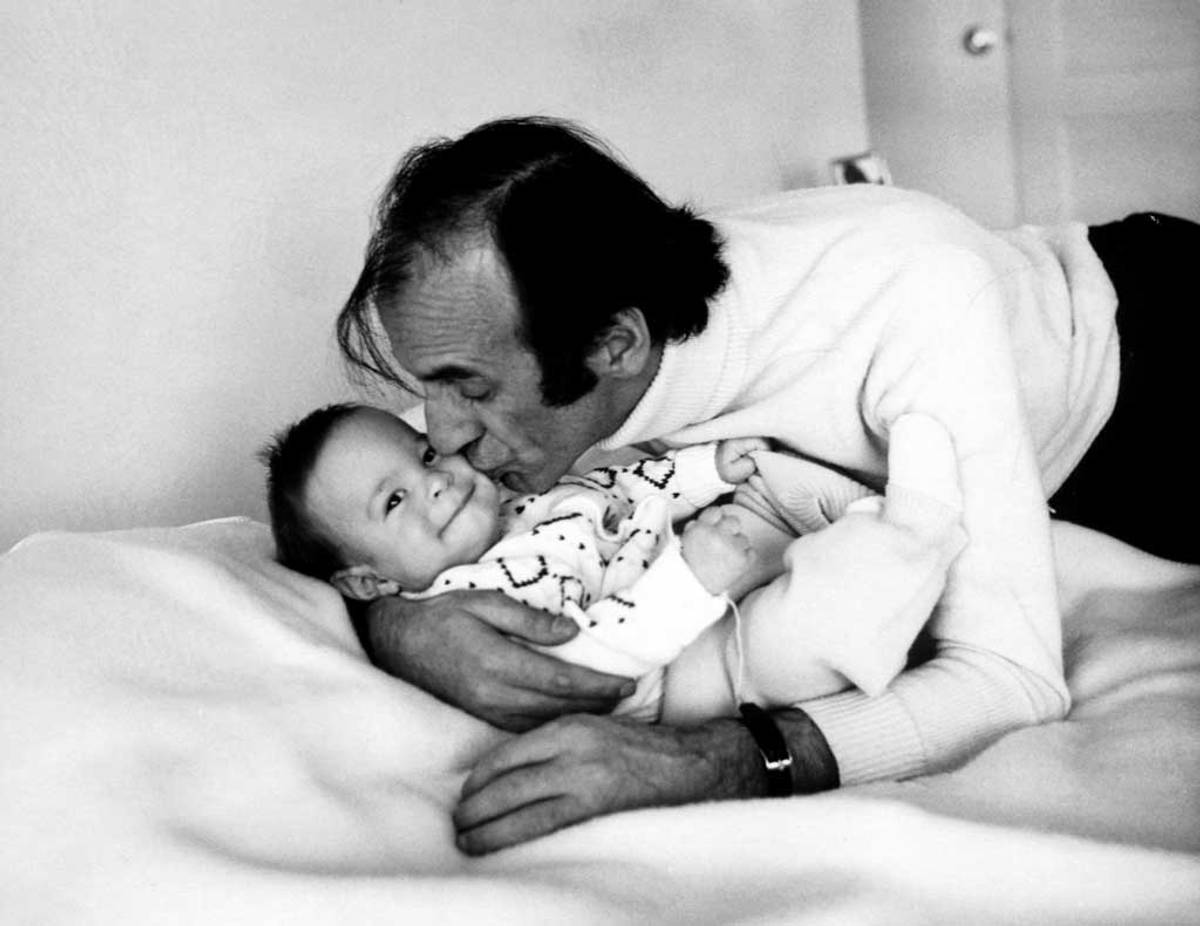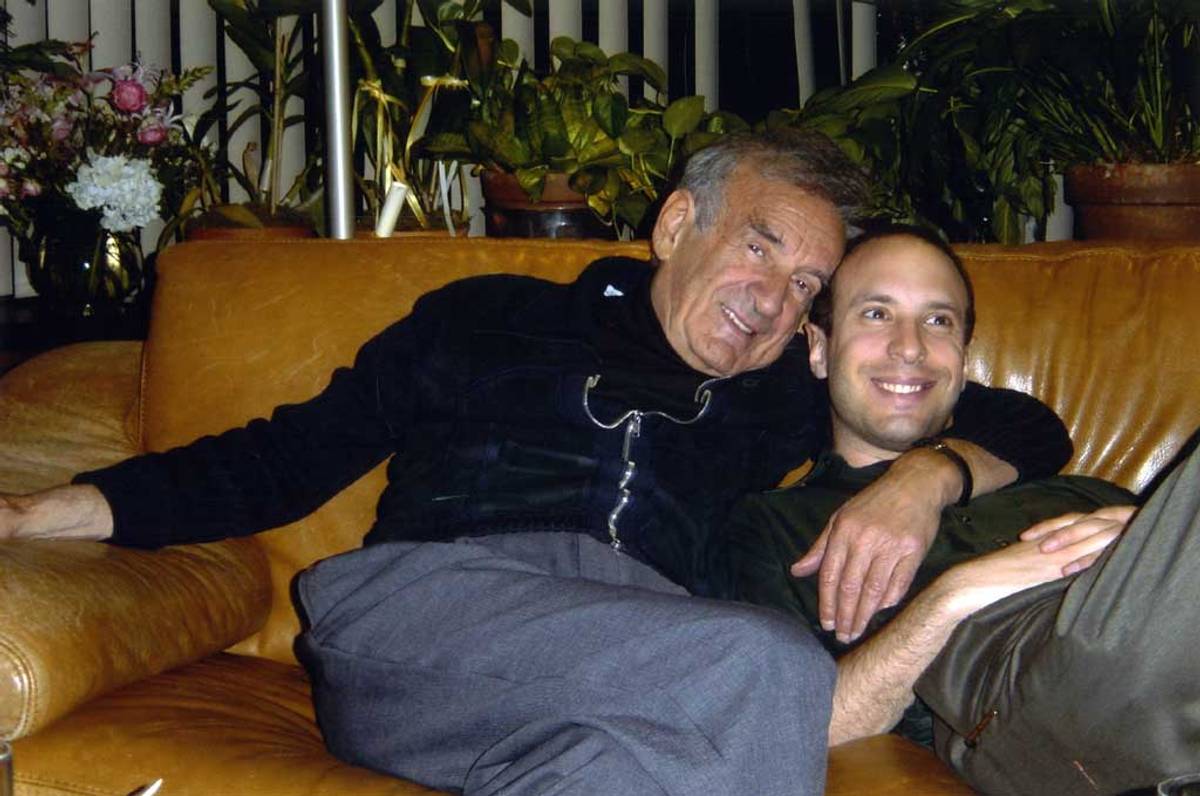My Father, Elie Wiesel
‘I want to tell you about the things that connect and separate fathers and sons, of the bridges to friendship and the spaces they must cross, and of seeing through to the best in people.’




There was a time when I could not see clearly what I had in my father. I loved him, but I saw his quiet voice as weakness, not strength. I did not want to be like him—so I felt, so I said, and so I acted. And it was at this time, when I had never been more distant from him, when I had wanted nothing more than to be free of my family’s history—that the Lubavitcher Rebbe gave my father a blessing. “One day,” the Rebbe told my father, “you will be proud of your son—he will be proud of you—and then you will both be proud of me.” I grow prouder of my father with the passage of each and every day, and I hope that he and the Rebbe are carrying on their grand philosophical discussions and enjoying each other’s company up above.

This is what I want to tell you about my father: My father was a builder of bridges across generations. Through his love, reaching both forward and backward through time, I feel connected not only to him but to my grandparents as well. He was a builder of bridges across cultures and faiths. He taught and learned from Hindu and Muslim students, he broke bread with cardinals and atheists. He valued friendship as an ideal above all others. He had a way of seeing the best in people that brought their better natures to the surface. And he pursued his friendships from a position of inner strength and confidence derived from knowing where he came from. Throughout his entire life, he worked with a picture of his childhood home in Sighet over his desk.
I want to tell you about the things that connect and separate fathers and sons, of the bridges to friendship and the spaces they must cross, and of seeing through to the best in people. I want to tell you about my father’s voice, which could thunder for justice in front of world leaders, but could also, in its quietness, cause even his most skeptical adversary to lean in and listen carefully. And I want to tell you about the wonderful and warm person he was—not when he was on the world’s stage but when he was engaged in everyday interactions with people: his students, his friends, the taxi driver, the attending physician, the person he just met next to him on the plane. Whether you came up to tell him you admired him or disagreed with him, he always asked for your name, and he would always take the time to hear your story.
I am indebted to the Washington Post’s Eli Saslow for his strong and authentic journalism in sharing the story of Derek Black and Matthew Stevenson. Derek Black is the son of Don Black, prominent white supremacist and operator of the Stormfront website. Derek had been groomed since childhood to inherit this legacy and was already attracting a following due to his strong innate qualities as a leader. But although he led a talk show devoted to white supremacy off-campus, Derek sought a lower profile on the New College of Florida campus and did not broadcast his activities. Away from home for the first time, he was determined to pursue rational thought wherever it led him.
Attending the same college was Matthew Stevenson, a Jewish student on campus who had the bravery to host Shabbat dinners in a place where there were none. Matthew is very much the product of his parents: His father believed in and taught Jewish teachings of self-transformation. His mother, who sadly passed away last year, believed fervently in service to others. And so Matthew came to college with a strong base of confidence and values. He reached out to other groups and faiths—and those without either—and made his table a focal point for fellowship and dialogue. And then a chance encounter involving country music—yes, I finally have a reason to be grateful for country music—brought him and Derek Black together.
Matthew saw in Derek a soul who seemed isolated, who had grown up through no fault of his own in an environment where hatred was woven into the fabric of daily life. So when Derek faced an angry campus in the wake of his identity having been revealed by a sharp-eyed third party, Matthew invited him to Shabbat dinner with some of his friends. And another one. And another one after that. And after becoming close to Matthew and his friends, people he had been taught to hate, Derek wrestled with what he thought and felt and furiously considered what it would mean to break with his past.
Then Derek took the unbelievably brave step of recognizing his friendship with Matthew and recognizing that hatred no longer had a place in his heart. And, posting a powerful letter to a liberal online publication, he publicly distanced himself from the views he had been taught since birth.
There is so much my father would have responded to in this story, had he lived to hear it. This is the story of how the unexpected can happen when you engage with people rather than shutting them off. And has it ever been easier than in 2017 to surround ourselves with people who think what we already think, when you can unfriend someone so easily on Facebook for saying something that offends you?
“Words,” my father wrote, “can sometimes, in rare moments, attain the quality of deeds.” As Matthew, Derek and friends exchanged words and ideas with each other, could there have been a more important conversation going on in the world at that moment?
Think of all the barriers that prevent us from opening ourselves up to someone else’s ideas, the preconceived notions we can have about each other. I know I have mine. What are yours?
• “All Trump voters supported the alt-right so I can’t talk to them.”
• “Orthodox Jews are taught what to think, they’d never understand me.”
• “Zionists can’t be feminists, they don’t belong in this movement.”
Matthew and Derek broke through walls much like these to find out what was on the other side. They broke through the labels and preconceptions and found—nothing more and nothing less than each other, fellow human beings.
The reckoning after Derek’s letter was immediate. Derek wrote me that his father experienced his only son’s break from the movement “like a death.” When he reached out to his family, he was no longer welcome—except … his father still wanted to see him. He ignored the objections of his family to be with his son. Derek writes: “It was uncomfortable at times, but … we had spent years talking about politics, science, the news, philosophy, and we could still do that. I was now ‘on the other side’ but I was still the same person.”
Does Derek’s father know what he has in his son? Derek’s father should be so deeply proud of him, for his courage, for his humility, for his love. I am deeply moved that they still talk, that Derek’s father loves his son more than he loves his ideology. Although I could not disagree more with the hateful views Don Black has promoted, I am inspired by the son who is a credit to his father’s name.
And having benefited from the Rebbe’s blessing, I gently hand it over to the Black family in hopes that it will find a home there. I pray tonight that Derek’s father will see the true value of his son more quickly than the decades it took me to see the value in my father. I pray he will join his son in renouncing hatred. I pray that when that moment happens, Derek will be proud of his father, his father will be proud of him, and they will both be proud of Elie Wiesel z”l, a man who deeply believed in peace, in dialogue, and in the love between fathers and sons.

Adapted from remarks delivered at The World Values Network’s Annual Champions of Jewish Values Awards Gala in New York City on May 21, 2017, where Derek and Matthew were selected by Elisha to receive the Elie Wiesel Award.
***
You can help support Tablet’s unique brand of Jewish journalism. Click here to donate today.
Elisha Wiesel is the son of Elie and Marion Wiesel.